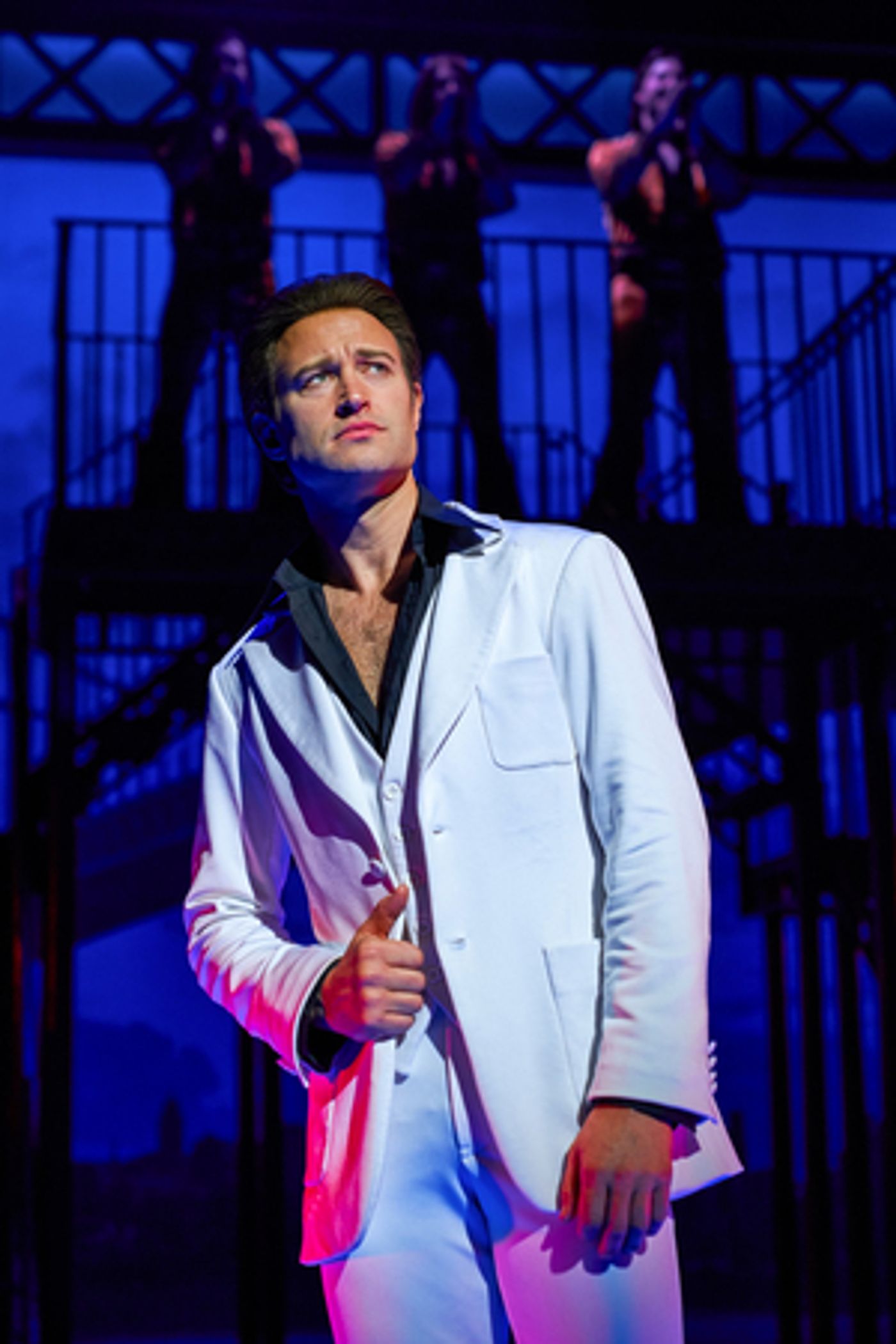Interview: Richard Winsor Talks SATURDAY NIGHT FEVER at the Peacock Theatre
The Casualty star and Matthew Bourne regular discusses his starring role

Perhaps best known for his television roles as Caleb in Casualty and Father Francis in Hollyoaks, Richard Winsor began his career dancing in a variety of Matthew Bourne productions, including Swan Lake and The Picture of Dorian Gray.
He now brings Saturday Night Fever, his debut role in a musical, to London's Peacock Theatre, and sits down with us to discuss the show and his approaches to acting.
What can audiences expect from Saturday Night Fever, and how has your experience in the role been thus far?
Well, we did a short tour just before the pandemic, but it's very special to take it somewhere like the Peacock, which has its connection with Sadler's Wells, a venue which I have a connection with through my Matthew Bourne career. It feels like it's in the right place, since it's a dance house.
I think audiences can expect a really electrifying night. You get taken on this whirlwind of dark, gritty drama, but also the band are up there on stage throughout, the Bee Gees are there as an ever-present force on stage, which is a new way of looking at the show. So it's a fully incorporated, multi-sensory experience.
Coming out of the back end of a pandemic, it's a real blessing. The pandemic stripped us all of our usual outlets. When I see the audience, I see how much people have missed and yearned for this level of excitement and entertainment. It's a real privilege to be helping bringing that back. Also, I feel fitter and stronger than I ever used to, I did a Matthew Bourne show, The Midnight Bell, at the end of last year, and that really retrained my body after several years of TV. I'm in a really good place for this production.
Are there any commonalities between TV and stage acting, and do you feel like one informs the other?
When you do any role, whether Matthew Bourne or a play or musical or anything else, and you've got past the first week or two of perfomances, it becomes innate in your body and you can play with it without worrying.
On TV you need to find that straightaway; you need to find that freedom to play with it instantly. You need yourself for your two or three minutes, for your close-up - that's your moment. It's more of a patience game, learning how to be more refined in that short window of time. With theatre, there's more time leading up to feeling like that, but then again in theatre you don't get a second chance beyond that moment. It's about learning the strengths from theatre and using them on TV, and vice versa.
As someone from a dance background, how did you find the transition to theatrical roles?
I've worked with Matthew Bourne from the age of 19, and I wouldn't say his work is only dance-based - it's very crossover, it's plot-based and character-driven. The characters are well-researched and thought out, so I needed to have a sense early on of how to research a role, and take the audience on a journey through that. I always like to have plays and dance running along each other, so even though this is my first musical there wasn't much of a transition to acting in a theatrical way.
Did you feel a pressure playing a role so iconically portrayed by John Travolta in the 1977 film?
It's definitely a challenge not being a carbon copy of John Travolta - he's the iconic figurehead of this story but I didn't just want to mimic him. Since it's so well-known, there were some notable '-isms' in there, but ultimately I need to play him truthfully through me. So the challenge is there, but I love taking on those kinds of challenges.
I'm an actor who likes to research the role, so I didn't just look at the film, I also looked at what life was like in the 1970s in Brooklyn, what that 'disco fever' was and why it felt so depraved. There are all these themes of not having enough to survive and needing to graft, balanced with the dream of being successful at dancing.
When [director] Bill Kenwright approached me, I agreed with him that we wanted to keep it as dark and gritty as possible. Some people forget how gritty the original film's themes are and put it in the Grease, glossy musical bracket - but it deals with religion, drugs, wanting to lose yourself in the 'abandonment of disco'. So we've made it gritty in that way, but with the 21st-century glossiness, with a band and updated choreography.
What does researching a role typically involve for you?
Reading materials are the main thing. In The Midnight Bell I played a character with schizophrenia in the 1930s - it's an adaptation of a novel called Hanover Square, so I really dissected that novel and thought about how the character would feel and move. It's about figuring out how character would tick, and how they'd react in certain situations, and have all those tools ready with you.
Also, Tony in Saturday Night Fever has an effect on all the characters around him - his brother, father, his needy girlfriend - so you need knowledge of all those other characters and how they affect your own.
What's next for you after SNF?
It's tricky! I'm in talks with Matthew Bourne, for a project in the middle of the year, but I can't really talk about that. I'll see what happens with this show going forward, and there's lots of nice things being discussed. For now, though, this is a really exciting show to be part of - the audiences are loving it.
Saturday Night Fever is at the Peacock Theatre until 26 March - book tickets here
Videos

